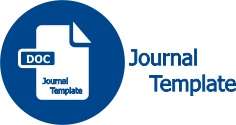ANALISIS BELANJA PEMERINTAH TERHADAP PENINGKATAN SUB-SEKTOR TRANSPORTASI (STUDI KASUS KOTA MANADO 2007-2013)
Abstract
ABSTRAK
Sektor tranportasi merupakan salah satu komponen utama dalam peningkatan arus perekonomian, baik untuk memaksimalkan potensi daerah yang selama ini dimiliki namun juga untuk membuka sektor-sektor ekonomi baru yang berujung pada peningkatan perekonomian sebuah daerah.
Guna memanfaatkan potensi-potensi yang dimiliki maupun membuka potensi-potensi perekonomian yang baru maka peran serta pemerintah dalam mengatur alokasi belanjanya perlu untuk lebih dimaksimalkan. Untuk melihat seberapa besar pengaruh belanja pemerintah dalam bentuk belanja langsung dan belanja tidak langsung mempengaruhi peningkatan sub-sektor transportasi.
Penelitian ini menggunakan Ordinary least square dengan metode regresi berganda, dari hasil penelitian didapatkan hasil r square sebesar 96,7. Dengan hasil ini maka dapat terlihat pengaruh belanja pemerintah terhadap peningkatan sub-sektor transportasi hampir mencapai angka 97 persen, yang artinya hanya tersisa 3 persen tingkat pengaruh variabel lain.
Kata kunci : Belanja Langsung (BL), Belanja Tidak Langsung (BTL), Otonomi, Transportasi
ABSTRACT
Transport sector is one of the main components to increase the flow of the economy, to maximize the potential of the area that had been held, but also to open up new economic sectors which resulted in an increase in the economy of a region.
In order to utilize the potential that may or unlock the potential of the new economy, the role of government in regulating the allocation of spending needs to be maximized. To see how much influence government spending in the form of direct expenditure and indirect expenditure affect the improvement of the transport sub-sector.
This study using the Ordinary least squares multiple regression method, the result showed the the r-square of 96.7. With that, it can be seen the effect of government spending to increase transport sub-sector almost reached 97 percent, which means that only the remaining 3 percent the level of influence of other variables.
Keywords: Direct Expenditure, Indirect Expenditure, Autonomy, Transportation
Full Text:
PDFDOI: https://doi.org/10.35794/jpekd.10247.17.2.2015
Refbacks
- There are currently no refbacks.
ISSN Online : 2685-3183
google scholar : https://scholar.google.com/citations?hl=id&user=uSKiqNkAAAAJ
2.png)


